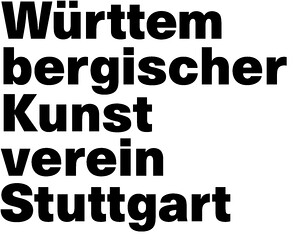Not Dressed For Conquering
October 15, 2016–January 15, 2017
Entrance Stauffenbergstraße
Schlossplatz 2
70173 Stuttgart
Germany
Hours: Tuesday–Sunday 11am–6pm,
Wednesday 11am–8pm
T +49 711 223370
zentrale@wkv-stuttgart.de
“Let’s enter the a-historical and hermetic world of fashion to dirty its surface.”
–Ines Doujak
For the exhibition Ines Doujak. Not Dressed For Conquering, Württembergischer Kunstverein temporarily assumes the guise of a fashion store—to be precise, an assortment of various pop-up stores.
The show is based on the long-term Loomshuttles / Warpaths project by Austrian artist Ines Doujak (*1959) that, in different forms and formats, explores the links between textiles, fashion, colonialism, violence and globalized production conditions. It comprises Doujak’s “eccentric archive” that focuses on the history of globalization based on textiles from the Andean region; an open-ended series of sculptures, performances, writings and video works along with various, constantly evolving fashion collections.
The exhibition Not Dressed For Conquering features a selection of all these elements, reorganizing and extending them. The focus is on seven fashion collections showcased in the specially designed pop-up stores, each following different themes and motifs. Among them, the fire of burning factories and the burnout—in the literal sense too—of low-wage workers, animal and human skins, carnival and masquerade, and the devil himself. Under scrutiny are the supply chains of global trade, tightly organized by means of barcodes, automated cranes, containers and mega ships, or the long history of degrading workers to the level of “intelligent apes.”
The collections consist of fabrics in which the various themes and motifs are directly inscribed and of patterns, garments, outfits and accessories derived from them, but also of writings, publications, objects, videos and pieces of dance and music in which patterns are transformed and translated into motion and sound.
Employing the glamour of the fashion world, Doujak not only spotlights the exploitative structures, gender and class orders of haute couture and mass-market clothing. Harking back to the resistant, anarchistic practices of textile design ranging from Andean weaving traditions to Dapper Dan, the iconic New York tailor to the 1980s’ hip hop scene, she creates another, a different fashion that counteracts the status quo. This idea is also embodied by a group of “looters” and “rioters” who act as a kind of inverted gatekeeper at the various pop-up stores.
This other, resistant fashion again is the focal point of a number of performances and workshops taking place during the exhibition, combining tailoring, dance, music, film and politics.
“Performance, film and song are translations in motion of the rhythmic textiles of cultures which, using the off-beat phrasing of music, are a vibrant visual attack where the colors must talk to each other or literally argue. The intention is for such motion to break the cultural paradigm in which patterns exist only within borders, so that they may permeate the world at large.”
–Ines Doujak
Accompanying program
Panel discussion: “Burnout. Deadly Fire. Four Years, No Justice.”
November 24, 7pm
with Thomas Seibert (medico international) and Miriam Saage-Maaß (ECCHR)
In September 2012 the most deadly fire in a textile factory up to this time, one which made cheap denim jeans for the German company KiK, and with whom it had a long-term agreement that accounted for 70% of its production, killed 287 workes and injured many Ali Enterprises in Balida town, one of Karachi´s SITE (industrial) areas in Pakistan´s Sindh province.
Seminar: “Lost and Found”
November 26, 7pm
with John Baker, Ines Doujak and Evelyn Steinthaler
As a last resort, mothers in 18th century London who could not support their children hoped to win a place for them at the Foundling Hospital determined by a lottery system. Instead of identity papers they left an individual piece of cloth. Now, parents in war zones have a similar hope for their children to find refuge in Europe. Too many disappear in the process despite the heavily monitored world in which we live. We would like you to join us to search individual fates of unaccompanied minors in a time of desperation and need, and examining the economics of desperation.
Educational program
Guided tours
Free guided tours on each Sunday at 3pm
Curator’s tours
Wednesday, November 16, 7pm
Wednesday, December 7, 7pm
Sunday, January 15, 4:30pm



